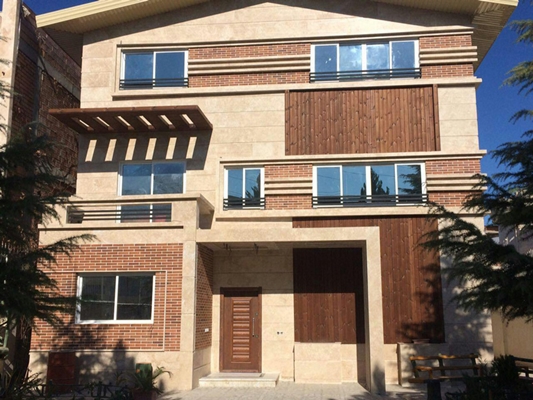Nanotechnology can be used in a whole variety of sectors, including construction materials and the coating of structures. A knowledge-based company in Iran has, for the first time, produced a kind of nano-mortar which is completely water-repellent.
In the construction material sector, it has been quite some time that Iran has been importing materials that prevent the penetration of water, but they are not water-repellent. Scientifically, there is a huge difference between the two concepts.
The Research and Development Department of this company has, for the first time in Iran, produced a type of construction material with super hydrophobe (water-repellent) property. The material has numerous applications. For instance, it can be used to produce a type of artificial stone for facades in different colours and shapes. The material is water-repellent; so; it never gets dirty and does not need cleaning.
The material is used as coating, two to three millimeters thick, on different types of artificial stone, making them economical construction materials to be used for the façades of buildings.
The material comes in different colours and shapes. Similar materials which are imported and which are not water-repellent is sold at between $8-15 per kilo on the Iranian market. However, the Iranian-made material costs less than $5.1 for end users.
In fact, the constructions materials used as the façade of buildings are expensive and are not insulators, either. For example, they may cause the building to become too warm in summer. However, the artificial stone produced with the newly-developed nano-mortar almost never gets dirty, is much cheaper and functions as an insulator, too. Moreover, it is produced in hundreds of different beautiful designs.
The water-repellent mortar made with nano-particles is not only used to produce materials for facades; rather, it has other uses as well. As a case in point, some equipment and devices in hot and humid climates can be coated with it to make them rust-proof. For example, pylons of some huge industrial tankers can be coated with this nano-mortar, so that they will never rust as a result of natural causes such as humidity.
The product can make its present felt on the export market as it is of a very high quality and extremely cheaper than similar foreign-made products.
